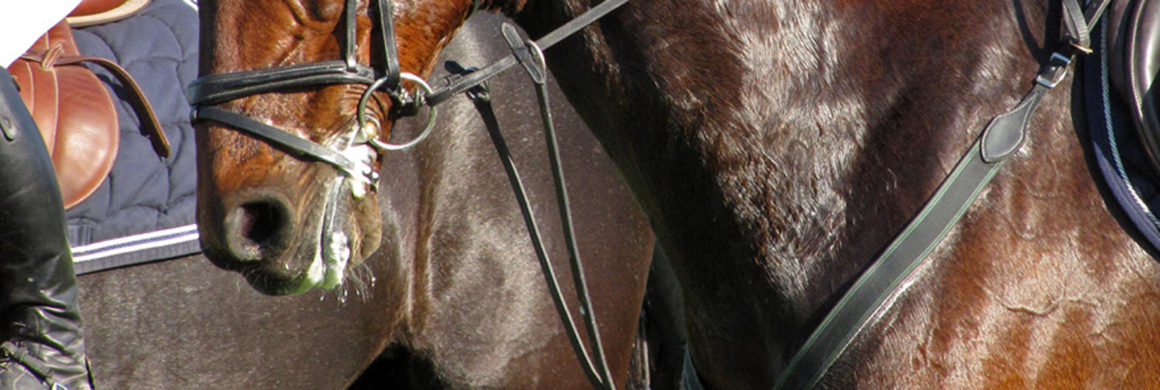Electrolytes: a simple supplement which can cause impassioned arguments in the equestrian world. Feed commercial electrolytes in feed — no, put it in the water! — but electrolytes are to make horses drink more water! — just put salt in their feed — they only need mineral blocks…. And so on.
Here’s the most simple definition of what electrolytes do: electrolytes keep a horse’s cells operational and hydrated. When a horse’s electrolyte levels are off, their cells stop operating properly, water isn’t carried to the cells which need it most, and metabolic problems result — conditions like tying up, which we see in hot horses who can’t seem to cool down properly.
Horses eating roughage and commercial feeds are already taking in electrolytes, and minor imbalances of minerals are filtered by the kidneys (which is why if you suddenly put your horse on additional electrolytes, you may find an extraordinary wet spot developing in their stall).
The necessary electrolytes leave the horse through sweat, and this is when metabolic issues can start creeping in: horses lose tremendous amounts of essential electrolytes in sweat, and they need to be replaced. If your trail horse is dripping with sweat after an afternoon’s ride, he’s losing electrolytes. If your two-star event horse is dripping with sweat after a long cross-country ride, he’s losing electrolytes. The activity level doesn’t matter: what matters is the sweat, and how long the horse has been sweating.
A sweaty horse can typically recover electrolytes naturally: they just need some time with some hay or grass, a mineral block, and a bucket (or three) of water. If there isn’t time for that, because of a pressing show schedule, for example, an electrolyte supplement can fill in. Electrolyte pastes can lift a horse’s electrolyte levels quickly, bringing them back to optimum levels.
If you’re prepping a horse for hard work in hot weather, you can help them out with daily electrolyte supplements. Top-dressing feed is one approach; another is to put electrolytes in water. Some vets suggest just dressing one water bucket with electrolytes, leaving the other one plain: if the horse needs the electrolytes, they’ll go for the doctored water.
Most vets agree that electrolyte supplements don’t hurt, even if the horse doesn’t really need them. (Well, they’ll hurt your shavings bill a little bit.) A mineral block, hay, and plenty of fresh water are the winning trifecta for healthy electrolyte levels in a normal horse. Keep a tube of electrolyte paste in your medicine cabinet for emergencies, and keep an eye on your horse’s sweat throughout the day, and you should have a safe summer.


